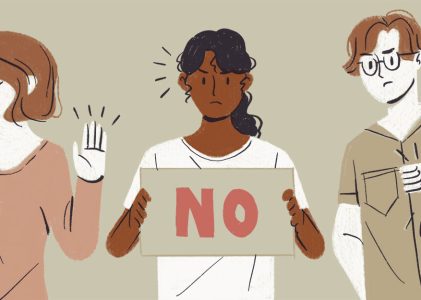
Does Rejection Feel Like a Punch to your Gut?
Rejection Sensitivity Dysphoria will send you reeling.
Rejection, criticism and judgment feel bad for most of us. For those of us with Rejection Sensitivity Dysphoria (RSD), these experiences cause persistent and overwhelming emotional pain.
Rejection, whether real or imagined, may hurl us into a spiral of rumination, self-loathing and physical discomfort that completely derails us. We may feel as if we’ve been punched in the gut – breath knocked out and unable to think, our “brain space” engulfed by a heavy cloud of panic and doom. We may cry or lash out, decide to quit the situation or lose motivation to pursue our goals. To make matters worse, the perceived rejection may not even be real, as we may misinterpret others’ behavior or exaggerate the scope or importance of the offending comment or action.
RSD is a relatively new and controversial topic and isn’t yet recognized by the Diagnostic and Statistical Manual of Mental Disorders, Fifth Edition (DSM-5), the go-to reference for mental health professionals. Instead, RSD describes a pattern of symptoms that cause great distress and impairment and are often associated with other conditions, such as ADHD, anxiety and depression.
A lot of recent awareness about RSD comes from people sharing their experiences through social media and other platforms, especially among the ADHD community. People with ADHD may be at especially high risk for RSD, possibly due to a combination of neurological differences and the sheer amount of negative feedback they receive from others because of those differences.
What Are the Symptoms of RSD?
There is no official set of RSD symptoms. However, here are some commonly reported experiences.
- Sudden and intense bouts of rage, sadness or hopelessness when your feelings are hurt or you think someone has rejected or criticized you
- Feeling emotions as intense physical sensations (e.g., gut punch, blow to the head)
- Needing others to accept and like you, even if you don’t know or care about them
- Fluctuating self-esteem based on approval or validation from others
- Spending lots of time mulling over how you did or said something wrong to the point that it causes you intense distress or physical discomfort
- Spending too much time on projects to make them perfect and above reproach
- Needing others to validate or encourage you and feeling frustrated or defeated when they don’t
- Setting unreasonably high standards for yourself or being your own harshest critic
- Not starting projects or taking opportunities for fear of failure
- Avoiding social interactions so that you won’t feel the pain of rejection
- Keeping barriers between yourself and others because you fear that no one could love the “real” you
- Feeling anxious in social situations because you assume no one likes you
- Feeling easily triggered toward shame or guilt
- Frequent defensiveness
- Thinking about hurting yourself after experiencing rejection
Many of these symptoms overlap with symptoms from other mental health conditions, so it is important to get an accurate assessment from a licensed professional.
Next steps
If you think you or someone you love suffers from RSD, you might benefit from the help of a caring professional.
You deserve to feel better. Take the first step by talking to your primary care physician, or contacting Athena Care.

Rachel Swan, MS
Editor
Rachel has a Masters of Science in Clinical Psychology from Vanderbilt University, where she spent 16 years as a Research Analyst in the Psychology and Human Development Department.


